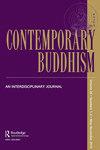ADDRESSING THE CAUSES OF CONFLICT-RELATED SEXUAL VIOLENCE WITH THE BUDDHIST DOCTRINE OF LACK OF A PERMANENT SELF AND MEDITATION TRAINING
IF 0.1
3区 哲学
0 PHILOSOPHY
引用次数: 0
Abstract
ABSTRACT Conflict-related sexual violence (CRSV) against both male and female combatants, as well as civilians, remains a reality of war despite global efforts to address it. International humanitarian law (IHL) unequivocally condemns sexual violence in armed conflict, and there are specific measures addressing this issue in IHL. However, Buddhist teachings and practices to address sexual violence in armed conflict have not been extensively researched, despite the prevalence of sexual violence in situations of armed conflict involving Buddhist communities. This article examines Buddhist teachings and practices relevant to addressing this challenge, identifying where these align with IHL, as well as proposing how Buddhist teachings may reduce the likelihood of CRSV. It is proposed that insight into the Buddhist teaching on lack of a permanent, essential self, as expounded in the Anattalakkhaṇa Sutta, coupled with meditation, is a practical means of dispelling the toxic conceptions of gender that exacerbate sexual violence in armed conflict and of fostering compassionate behaviour towards others. As brought to light by recent neurological research, Buddhist meditation practices lessen the ‘self’-focused outlook common to humans and increase the capacity for compassion, active empathy and resilience to peer pressure. Training in Buddhist meditation, supported by explanation of relevant Buddhist teachings, may therefore significantly reduce the cultural and individual attitudes that currently exacerbate the risks of CRSV.通过佛教教义中缺乏长期的自我和冥想训练来解决与冲突有关的性暴力的原因
摘要:尽管全球都在努力解决与冲突有关的性暴力问题,但针对男性和女性战斗人员以及平民的性暴力仍然是战争的现实。国际人道主义法明确谴责武装冲突中的性暴力,国际人道主义法律中也有解决这一问题的具体措施。然而,尽管涉及佛教社区的武装冲突局势中普遍存在性暴力,但解决武装冲突中性暴力问题的佛教教义和做法尚未得到广泛研究。本文探讨了与应对这一挑战相关的佛教教义和实践,确定了这些教义与国际人道主义法的一致之处,并提出了佛教教义如何降低CRSV的可能性。正如在《Anattalakkha》中所阐述的那样,有人提出了对佛教教学中缺乏永久的、本质的自我的见解ṇSutta与冥想相结合,是消除加剧武装冲突中性暴力的有毒性别观念和培养对他人同情行为的实用手段。正如最近的神经学研究所揭示的那样,佛教冥想练习减少了人类常见的以“自我”为中心的观点,并提高了同情心、主动同理心和应对同伴压力的能力。因此,佛教冥想培训,辅以相关佛教教义的解释,可能会显著降低目前加剧CRSV风险的文化和个人态度。
本文章由计算机程序翻译,如有差异,请以英文原文为准。
求助全文
约1分钟内获得全文
求助全文

 求助内容:
求助内容: 应助结果提醒方式:
应助结果提醒方式:


